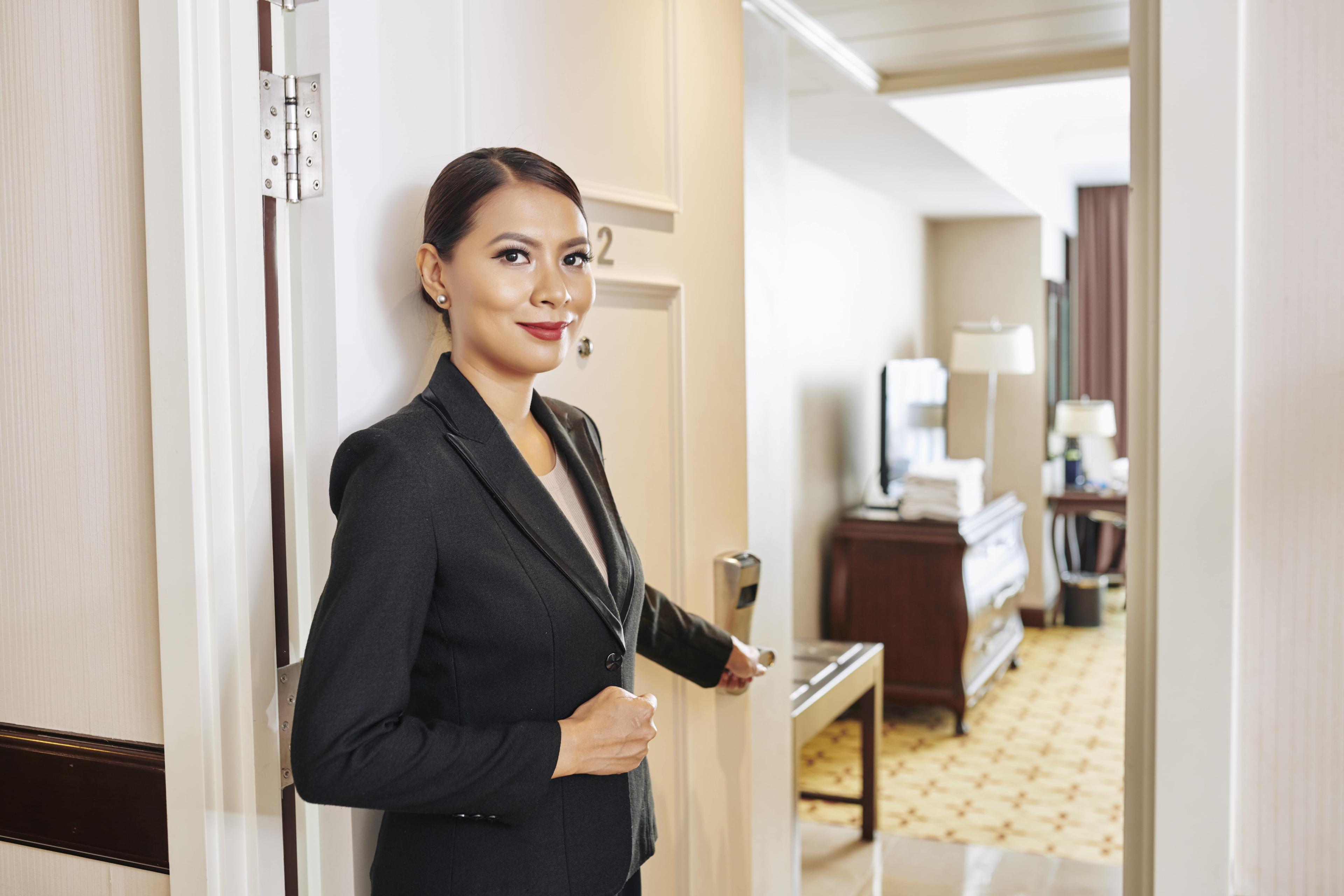May 10, 2020
How the Hospitality Industry Can Meet New Expectations of Travelers


The COVID-19 Pandemic has impacted us all, however, the hospitality industry is amongst one of the hardest hit, facing astronomical losses in revenue during 2020 resulting in a need for shifts in both how the industry runs and plans to re-open.
Airlines are hemorrhaging cash; hotels are sitting virtually empty and travelers are staying home. The crisis right now is real for workers, owners, and investors tied to travel.
As of April 21, 2020, according to Hospitality.net, the number of scheduled flights across the globe is “down by 64% compared to the same week last year.”
In addition, according to the AHLA (American Hotel and Lodging Association), since the health crisis started in the U.S. in mid-February, hotels have lost
“$18 billion in room revenue” and this number is rapidly growing resulting in an estimated loss of “$500 million in room revenue per day.”
The impact on jobs is not far behind in staggering effect. Owners and leaders have been faced with furloughing thousands of employees and the reality of whether or not many will return to work is uncertain.
In the hotel industry alone, “nearly 3.9 million total jobs have been eliminated or will be eliminated in the next few weeks.”
This has left any remaining staff to take on additional work while also facing stricter guidelines that undoubtedly lead to a larger workload.
Hospitality business leaders are now faced with determining how to move forward and create new standards that will keep all people safe and healthy while traveling.
As we learn more about social distancing from federal, state, and local officials, the hospitality industry will need to be innovators while facing these changes –they are faced with new restrictions and standards that will prove to be challenging for an industry that sees thousands of people moving in and out of its structures daily.
Housekeeping and cleaning staff will become some of the most important workers to have back on staff and working efficiently.
Beyond that, hotel leaders, are also faced with reestablishing trust and making a commitment to guests. This will no doubt be largely focused on how stricter cleaning and sanitizing standards have been adopted by each company to address the COVID-19 pandemic in addition to complying with social distancing expectations and standards.
Two of the key components to addressing change in the hospitality industry are:
Emotional awareness is key— building trust stems from establishing stricter cleaning standards, such as the AHLA’s “Safe Stay” council’s industry best practices that are being implemented immediately.
Consumer behavior is “shifting to digital channels, products, and services,” according to McKinsey & Company.
These shifts were already gaining popularity at a moderate pace over the last ten years, but the COVID-19 pandemic has forced many to rely on automation, grocery delivery, curbside pick-up, and Zoom calls.
Hotels are already shifting their operational standards by implementing autonomous floor scrubbers to help increase cleanliness in their hotels.
Being emotionally aware and embracing technology as an answer to the current crisis is necessary to move forward. COVID-19 has forced us to embrace these things as standards, not options, and at a faster pace, pushing us to discover new ways of going about our everyday lives.
While embracing all of this change at one time may seem overwhelming, all industries face these changes and must start to think through the long-term impacts of COVID-19. This undoubtedly means identifying new standards of cleanliness across all industries.
The hospitality industry has the opportunity to be the front-runner with innovative ideas that can push us all to make the transitions necessary to keep each other safe.
And, interestingly enough, according to Hospitality.net
“While hotel demand fell by 40%-50% in these key markets (U.S. Canada, Australia, Europe) during the second half of March, the desire to travel the same amount or more has only fallen by 10-20%—reaffirming that as long as they can, consumers will always want to travel.”
Good news for the travel industry! As soon as the go-ahead is granted, the hospitality industry is sure to see a resurgence. This means they should be ready to address what consumers will expect.
According to a recent Bloomberg article, airlines may even plan on “keeping middle seats empty,” on flights. In addition, it is likely all travelers will have their temperature checked before entering any public space.
We're all experiencing change in many ways right now and increasingly we rely on technology and automation to make things easier and safer for us.
Even just twenty years ago, asking millions of employees to work from home would not have been a possibility.
Due to technological advancements, that we’ve come to love and depend on, we can work from home, communicate with our teams over Zoom calls, bank from our phones and so much more!
The hospitality industry is no different. Airports, airplanes, hotel lobbies, hotel rooms, and many other traveled spaces will need to rely on technology to help them through COVID-19.
Technology like Cobi 18, a subscription-based autonomous floor cleaning robot, by ICE Cobotics, is one way the hospitality industry can embrace technology to support staff and changing standards of cleaning.
Not only do Cobots like Cobi take on repetitive tasks, freeing up other staff to focus on higher priority concerns, but they are also able to work independently of an operator—meaning in a time when the least amount of people in one space is desirable, these robots can continue to get work done!
Implementing autonomous cleaning technology can help the hospitality industry assure travelers that the strictest cleaning standards are being met and that the health and well-being of travelers are at the forefront of what they do.
ICE Cobotics is an industry-leading technology and cleaning equipment company specializing in automation and all-inclusive subscriptions. Contact our Automation Experts with any questions.
Ready to Explore Automation? Talk to an Automation Expert